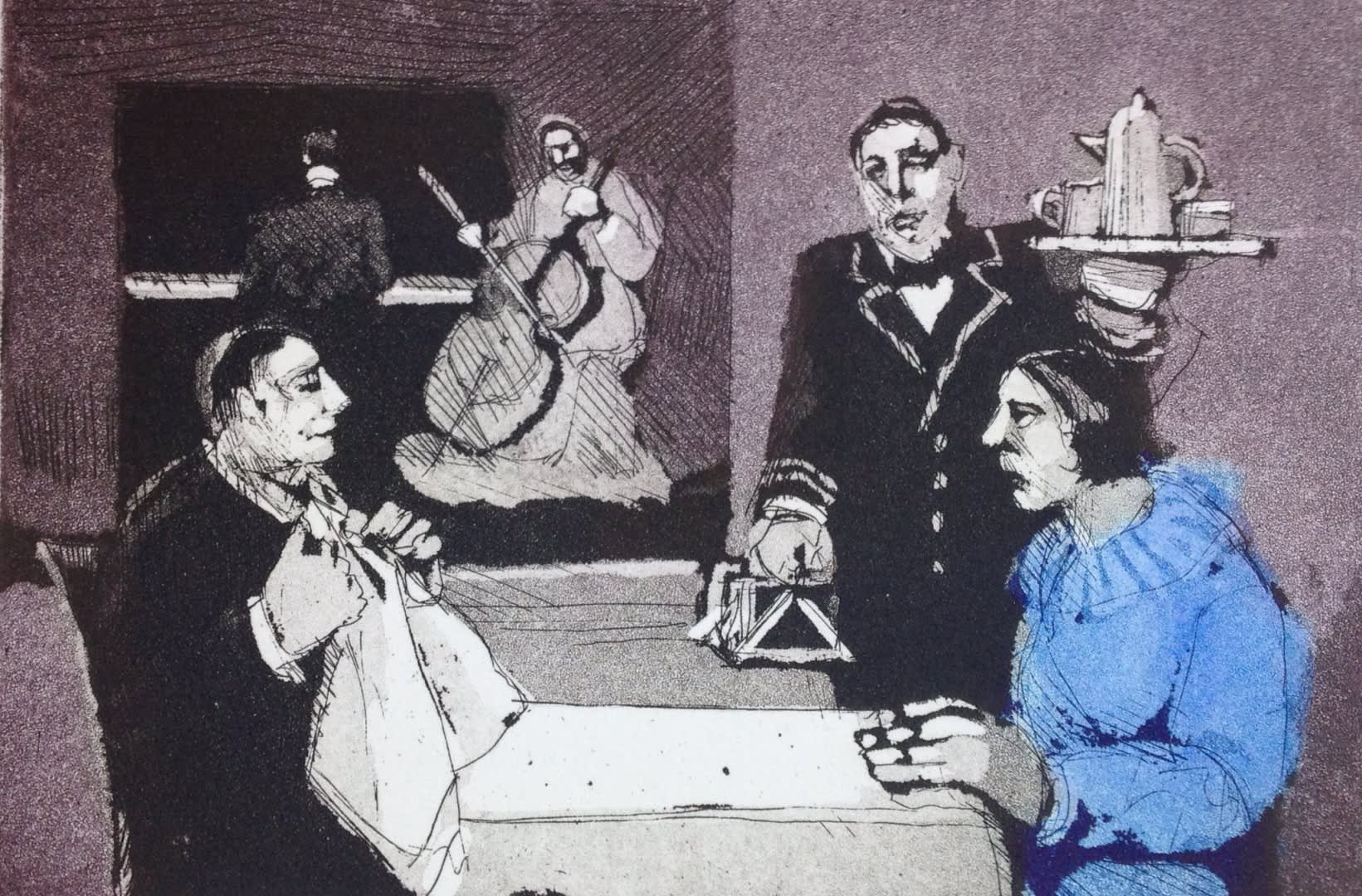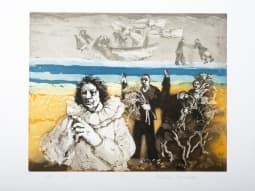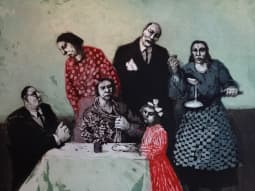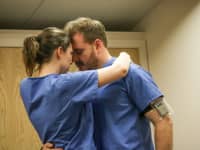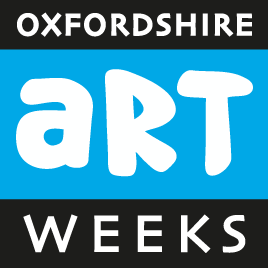Internationally recognised artist Karólína Lárusdóttir, whose paintings and printmaking have been much influenced by an Icelandic childhood, is celebrating her 75th birthday this year with an exhibition in Oxford (runs until 30 March). It offers a window into the simplicity of life in an Iceland of the past with colour, charm and an imaginative nostalgia.
Karólína’s maternal grandfather was an Icelandic wrestling champion who competed in the 1908 Olympics, and a famous adventurer who became a circus strongman in Barnum and Bailey’s Circus in the USA (the colourful spectacle that inspired The Greatest Showman). He made his fortune overseas before returning to Iceland and founding Reykjavik’s first flamboyantly luxurious hotel. The Hotel Borg opened in 1930 with an icing-sugar frontage and Art Deco styling, and still stands stylishly glacial today in Parliament Square, home to the first parliament in the world.
Here the young Karólína (born 1944) spent her after school hours and holidays, observing society life in Reykjavik: formal teas, glitzy dances and children’s parties as chefs and chambermaids scurried here and there. These are her formative memories, formed at a time when the Icelandic population had deeply traditional gender-defined roles, despite the country’s contemporary reputation as one of the most egalitarian countries in the world.
With a traditionally seafaring male population, the majority of women remained at home to raise children and run the house. The women that did work outside the home earned less than half the salary of their male counterparts. In 1975 (by which time Karólína was living in the UK with her own children) Iceland’s women famously staged a mass walkout. Around 90% of the female half of the population downed tools, leaving household chores undone and the menfolk to deal with their children. With many women working as teachers, schools and nurseries were forced to close, leaving many men no option but to take their children to work with them. About the event, Karólína said to Womankind Magazine, “I remember thinking how brave these women were, and how unhappy their husbands must be to look after the children for the day! I had two children at the time, aged seven and five. It’s quite something to be a mother on strike.”
Karólína herself had faced considerable parental opposition when she chose, like her grandfather, to follow a passion. Hers was art and it took her first to London then, backed by her maternal grandmother and namesake to Oxford, where she studied at the Ruskin School of Art then housed in the Ashmolean Museum.
Yet although living in the UK with a family of her own, it was to her Icelandic roots that she looked for inspiration. Her art is inspired by both the mythology and folklore of the country of her birth, the characters and customs of her childhood and the visitors to Hotel Borg in a more insular era before television and technology were all-encompassing; when social events, visits and gatherings were the substance of people’s lives – elements of a soap opera in which all the men and women were players.
Karólína’s richly detailed figurative paintings pair the everyday with ceremony, normality with eccentricities. The men are heavy, in dark suits, the women in waitresses’ aprons or colourful dresses. With figures grouped like the cast of a show, her colour choices add theatrical overtones that evoke the bright days and showmanship of her grandfather’s circus days into the ‘upstairs, downstairs’ world behind the curtains or a servery window. Her people exude both solidity and story – whether beside a fishing boat or diners taking tea or soup – attended by staff, their faces are watchful, expressive and gently unsmiling as if in the midst of subtle exchanges, inscrutable conversations or a silent understanding. And, from a country which had a strong witchcraft culture in the 17th century, Karólína also includes rather weighty angels in many of her scenes – perhaps indicating the protective role of adults in this world viewed through a child’s eyes.
Karólína is now resident once again in Reykjavik and is no longer making new work owing to ill-health. However, this month you have the rare opportunity to see a series of her etchings Wondrous Happenings, at the Sarah Wiseman Gallery in Summertown. Created ‘a la poupée’, a process in which the colour is skilfully applied by hand to each plate used in the printing process, their highly luminous and colourful feel is perfectly appropriate for this retrospective birthday celebration.
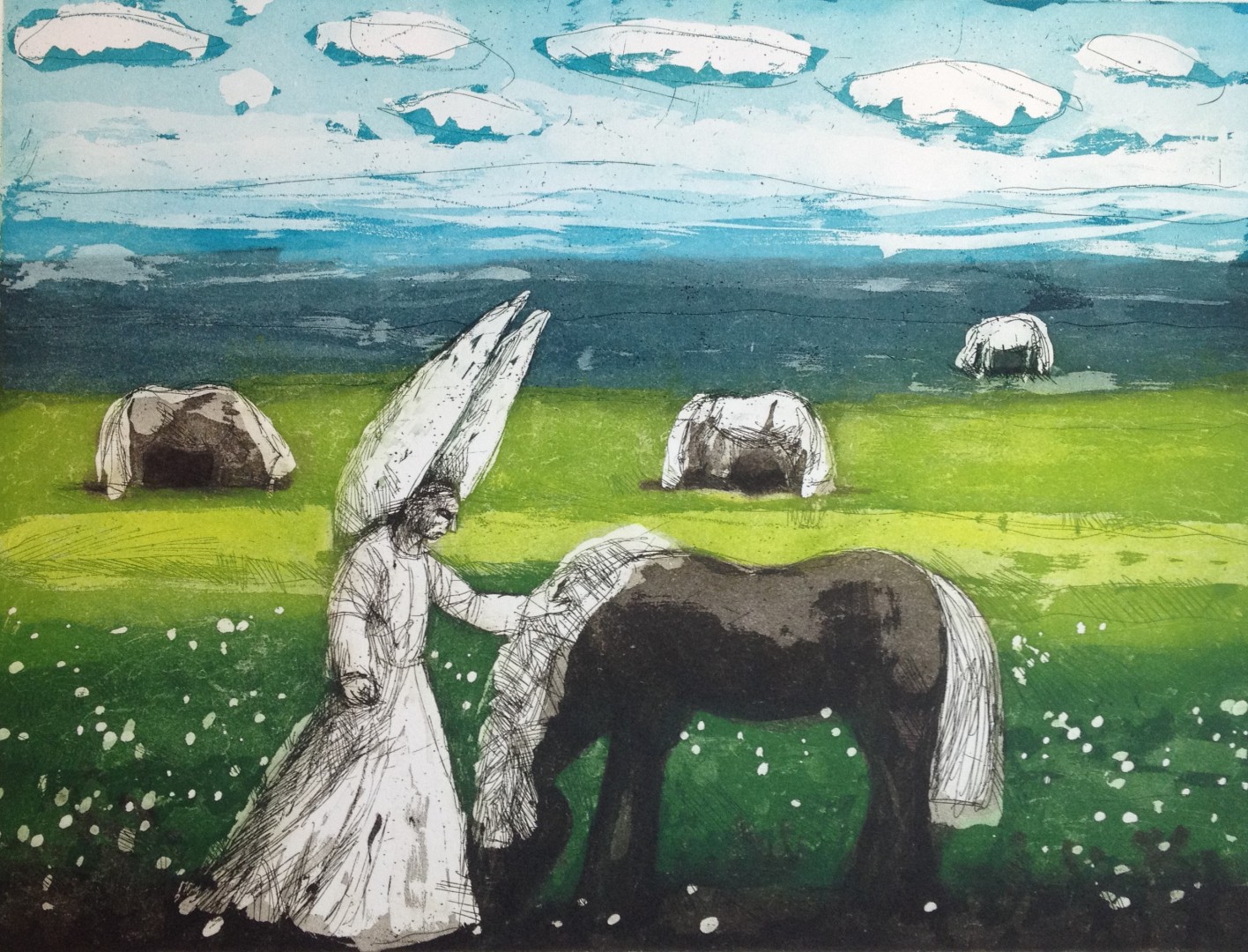
Since the time of writing Karólína Lárusdóttir has sadly passed away in Iceland, February 2019.
Telephone: 01865 865596
Email

